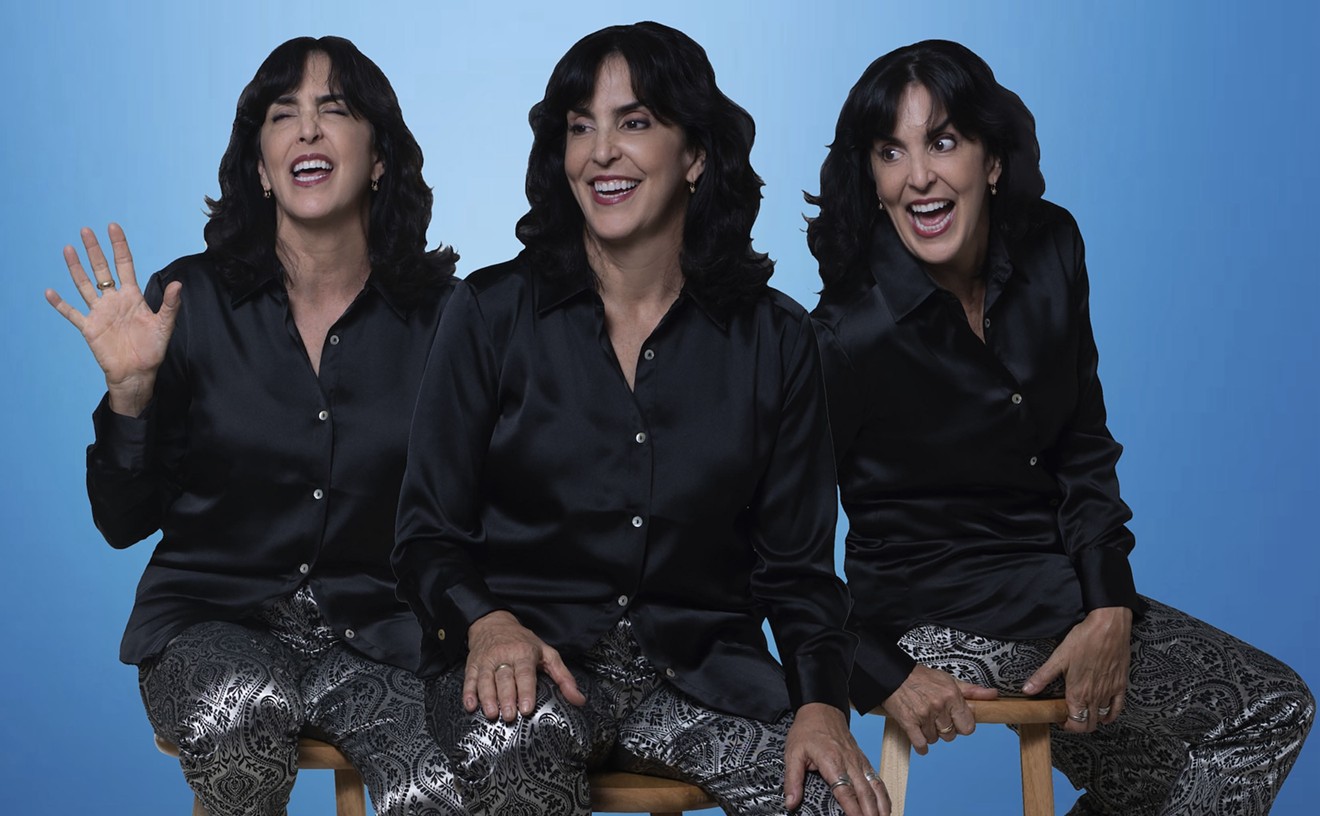Chamaco is the only Cuban film showing at the Miami International Film Festival this year. Made for a few hundred dollars, it's part of a new wave of independent movies now produced on the island thanks to cheap digital cameras. It's also the first to seriously tackle homosexuality and chauvinism since 1994's Academy Award-nominated Strawberry and Chocolate.
The movie revolves around a 22-year-old hustler, the chamaco (which translates roughly to kiddo) of the title, who accidentally kills a john in Havana's Central Park. Except the dead guy is actually the son of another trick of his and the brother of a lady the hustler is also banging. Throw in some drag queens; a couple of closeted, macho cops; and you have a gay Crash.Juan Carlos Cremata, the 48-year-old director, is making his third appearance at the festival. His other work has won a boatload of awards; the 2003 MIFF entry Nada Mas is even archived at the Museum of Modern Art in New York. On a scratchy, signal-delayed phone call from his house in Havana, he talks about Cuba's DIY approach to filmmaking, ornery exiles in Miami, and what in hell a "pinguero" is.
New Times: You began shooting the movie in April 2008. What was that like?
Juan Carlos Cremata: We shot it over ten nights, starting at midnight always, sometimes going until 5 or 6 in the morning. I moved the crew to locations in my mother's car. It was all improvised. We didn't have lights. We had one microphone for the actors. In scenes with more than one actor, we had to decide which character was more important. We had no more than ten people on the crew. My brother was helping me as producer. The art director is my cousin, and one of the musicians is also a cousin. When you don't have any money, you have to work with family.
How did you scrape the money together?
It's a pauper movie. I would buy beer on the cheap, resell it, and use the money for gas, drinks for the crew, and sometimes to pay a driver. I also made back to back with El Premio Flaco, which was funded by the state. When I get their money, I normally use it to make two movies. Some would call that diversion of funds. I call it reorganization.
Is it becoming commonplace to make movies outside the Cuban movie industry?
Lately it has because technology has allowed it. A whole generation of young people can now pick up a digital camera to express themselves. We shot Chamaco digitally and did all the postproduction -- a homemade color correction, a stereo mix -- on Avid at my house. I also like working without money because I can do whatever I feel like.
Talk about the film's gay-related content.
Strawberry and Chocolate provided an opening to discuss a topic that used to be very taboo. There have been several gay documentaries since, but Chamaco is the first proudly gay movie made in Cuba. Los pingueros -- which translates to gigolos but literally means big dicks -- have always existed here, even before the '59 revolution. What's happened is that everything's become more open, and it's not specific to homosexuality.
What kind of reception do you expect in Miami for Chamaco? Especially after the protests that greeted Los Van Van and balladeer Omara Portuondo.
My last movie [Viva Cuba] was for children, but every time I went abroad, I had to defend it before some of those recalcitrant Cubans. We laugh a lot at those protests. Burning CDs? It's ridiculous. These are artists that when we go see them we have fun. What kind of Cuban doesn't like Los Van Van? A boring Cuban. Showing a film like this in Miami is an important, historical step, a step towards normalcy.
Finally, Cuba's biggest movie critic, blasted Avatar. Thoughts?
I saw it on television about two weeks ago. All I can say is thank god we have movie piracy. If everyone in the third world had to pay for the 3D theaters, the rights, the tickets to see these movies, then we'd never see anything.
Chamaco screens March 9 at 8:30 p.m. at the Gusman Theater, 174 E. Flagler St., Miami; 305-372-0925. Here's the trailer, in all its porny glory:










